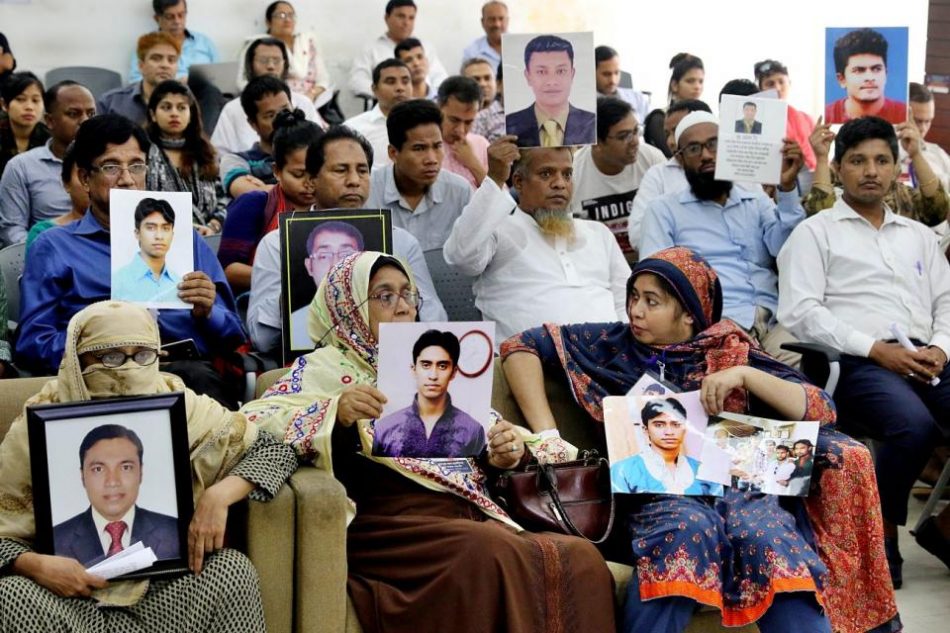The Asian Human Rights Commission states that between 2009 and 2019, 553 people in Bangladesh have gone mysteriously missing. This is the “official” statistic, meaning it is based on the number of missing persons cases filed with law enforcement. This number can safely be much higher, as is also claimed by the opposing Bangladesh Nationalist Party (BNP) because many cases are not even reported for fear of repercussions by the ruling party, the Awami League.
The period in question, between 2009 and 2019 falls under the Sheikh Hasina regime, one which is widely described as an authoritarian one. Enforced disappearances, extrajudicial killings and rapes have become an integral part of the political and social landscape of Bangladesh where despite the facade of economic development, the backdrop which the Awami League always uses as a crutch to insist the country is on the right track, lies an intrinsic apprehension of Bangladeshis to speak up.
Freedom of thought, freedom of speech and freedom of the press are all allowed…as long as they corroborate the ruling party’s false narrative that the country is booming and that Prime Minister Sheikh Hasina’s approval rating is record breaking. To date, the Awami League has not been able to provide any proof whatsoever of any internationally recognized measure of this popularity claimed.
Interestingly, the beginning of the period the enforced disappearances (2009) corresponds exactly to the year that Sheikh Hasina seized power for the first time, a trend which followed in 2014 and 2108. The sweetness of power-grabbing overwhelmingly exceeded the requirement to adhere to legal and legitimate free and fair elections.
Eleven years of continual oppression of 165 million Bangladeshis has led to an Awami League which has absolutely no accountability, to the point which even social media posts are monitored and the slightest anti-government comments may lead to possible enforced disappearances and extrajudicial killings. In fact, in the case of Abrar Fahad, a brilliant engineering student who was mercilessly beaten and killed by the ruling party’s student wing, the Chathra League, the Facebook post was not even a condemnation of Sheikh Hasina, but rather a mere comment. A very truthful one at that.
As always, the Bangladesh government is in denial, or rather, denies that there are any enforced disappearances or extrajudicial killings. Every criticism which does not end in violence is dismissed as “mischaracterizations and misunderstandings”.
Where does this all end? If Bangaldeshis think that a change will ever come about as a result of free and fair elections, it is likely to be a pipe dream.
Bangladeshis are stiuck between a rock and a hard place.
*The author is the Editor-in-Chief of Aequitas Review.
September 1, 2020


